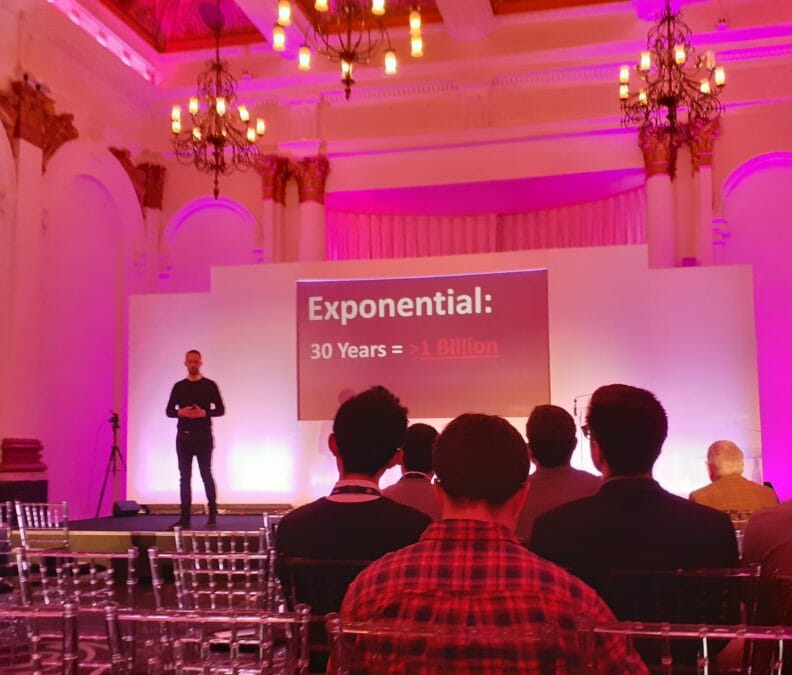In his talk, the IBM blockchain partner identified use cases in which blockchain, known for giving users the ability to track end-to-end progress, can improve social impact and sustainability.
These use cases, which involved APIs for gaining platform data in order to create new applications, were as follows:
- Tracing location and status of food products up- and downstream across supply chains
- Instant access to digital certifications and documentation
- Generating real-time and aggregate supply chain data, which can help extend the shelf life of food
- Expanding functionalities with the aid of third parties, delivering new value across the system

Blockchain Solutions
Day also told company executives that if their company is missing one element of focus out of people, planet and profit, “you’re not doing enough”.
Can blockchain really help create the internet of trust?
He then went on to cite the following examples of successful blockchain solutions when it comes to lowering social impact on the planet:
- IBM Food Trust, a cloud-based platform that traces food supply chains and works to decrease food waste, while working with companies such as Walmart and Golden State Foods (GSF)
- IBM’s partnership with Yara to produce agricultural data and advice, including weather data and recommendations for farmers
- Foodcloud, which connects supermarkets and local charities in order to ensure that food left over at supermarkets doesn’t go to waste
- TenneT, an EU company that implements blockchain technology into electric cars, household batteries, and other aspects of the electricity market
- PlasticBank, which creates circular economy focused on recycling plastic
Collaboration, not individualism
An overriding theme throughout Day’s talk on transforming social impact using blockchain was a need for collaboration between global corporations to focus on sustainable outcomes.
The future of innovation is collaboration — Tech Leaders Summit keynote 2019
“Individualism has led us to the situation we’re in today. We need to work as a collective,” said Day.
“Start with a common enemy, a common goal,” he recommended. “You’re going to need a facilitator, and you’re going to need some lawyers.
“When we work together, we’ll be breaking the current way of thinking, and we’ll be dealing with intellectual property, so lawyer up.”
Additionally, the IBM blockchain partner explained that a consortium can be achieved via the establishment of a consortium that focuses on producing vast blockchain technologies in line with the 17 sustainability goals drawn up by the United Nations.
These include ‘partnerships to achieve the goal’, ‘decent work and economic growth’, ‘sustainable cities and communities’, and ‘climate action’.
He also stated: “The dirty secret is blockchain will not save the planet. We will.”







